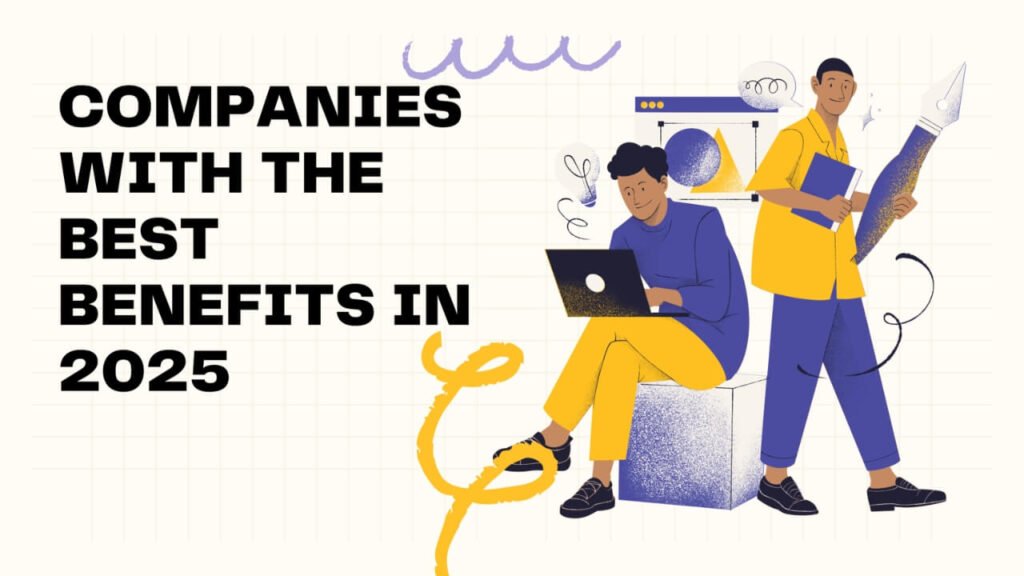In today’s competitive job market, companies with good benefits stand out not just for the salaries they offer but for the comprehensive packages that enhance the quality of life for their employees. For Americans seeking career growth, stability, and work-life balance, understanding which employers deliver the best benefits is crucial. This blog explores why benefits matter, which companies excel in providing them, and how these perks contribute to a thriving workforce and satisfied employees.
Why Companies with Good Benefits Matter
The benefits that companies offer are much more than just perks—they are a reflection of how much a company values its employees. These benefits can include health insurance, retirement plans, paid leave, wellness programs, childcare support, tuition reimbursement, and even unique offerings like fertility assistance or unlimited vacation days. As workplace expectations evolve, companies with good benefits are those that prioritize holistic support to ensure their employees’ well-being, productivity, and loyalty.
Research indicates that firms investing in employee benefits not only attract top talent but also enjoy lower turnover rates and higher engagement scores. According to Dr. Elizabeth Smith, an expert in organizational psychology, “Offering robust benefits is a strategic imperative that drives a culture of trust and high performance within organizations.” This philosophy underpins why leading companies continuously innovate their benefits programs to meet the diverse needs of their workforce.
Companies with Good Benefits Leading the Way in 2025
Several companies in the United States have distinguished themselves by offering outstanding employee benefits that go beyond the basics. For example, Apple, Google, Netflix, and Best Buy are frequently cited for their exemplary benefits packages.
Apple provides life and supplemental insurance, disability coverage, and generous time-off policies. Employees enjoy gym credits, stock purchase programs, and tuition assistance, enabling personal and professional growth. Apple’s commitment to these benefits supports its reputation as a top workplace and market leader valued at over $3 trillion.
Google is renowned for its comprehensive health, wellness, and financial support benefits, including onsite fitness centers, medical advocacy programs, and flexible work arrangements that include remote options. The company also supports family care through generous parental leave policies and community development initiatives.
Netflix offers employees unlimited parental leave and extensive paid time off, coupled with high-value employee life insurance policies. This focus on family and financial security helps Netflix maintain a passionate and loyal workforce.
Best Buy stands out for its medical insurance, digital self-care programs, and tuition assistance. Employees also benefit from significant discounts on products, an incentive that resonates well with staff and promotes satisfaction.
These companies have set a high standard for what employees can expect, highlighting the importance of benefits as a critical part of the total compensation package.
The Comprehensive Benefits Landscape for American Workers
Employee benefits have evolved significantly over recent years, responding to changing employee needs and societal trends. Today, benefits extend into areas that support not only health and financial security but also personal growth and life balance. Wellness programs, childcare facilities at work, mental health resources, student loan repayment assistance, and fertility treatments are becoming common in the benefits portfolios of top companies.
For American workers, these benefits are particularly important given the rising costs of healthcare and education, as well as the growing emphasis on mental health. Moreover, as remote and hybrid work models become more widespread, companies with good benefits frequently include technology stipends, internet reimbursements, and flexible scheduling to support work-life integration.
How Benefits Influence Employee Engagement and Retention
It’s clear from multiple studies that companies with good benefits tend to experience higher employee engagement, which directly correlates with increased productivity and reduced absenteeism. When employees feel valued and supported, they are more likely to commit long-term to a company’s mission and goals.
Employers who invest in meaningful benefits show that they recognize the full humanity of their employees. This approach nurtures loyalty and encourages a positive workplace culture where employees thrive professionally and personally.
Conclusion: Why Prioritizing Benefits is Essential for Modern Employers
In conclusion, companies with good benefits not only improve employees’ quality of life but also build stronger, more resilient organizations. For Americans entering or advancing in the workforce, understanding which companies deliver these benefits can guide better career decisions.
As the workplace continues to evolve, benefits will remain a cornerstone of employee satisfaction and a key differentiator in employer brand. Employers who lead with generous, thoughtful benefits programs position themselves for success by investing in their most valuable asset—their people.
you may also like
Private Clinic Business: A Guide for American Healthcare Entrepreneurs


